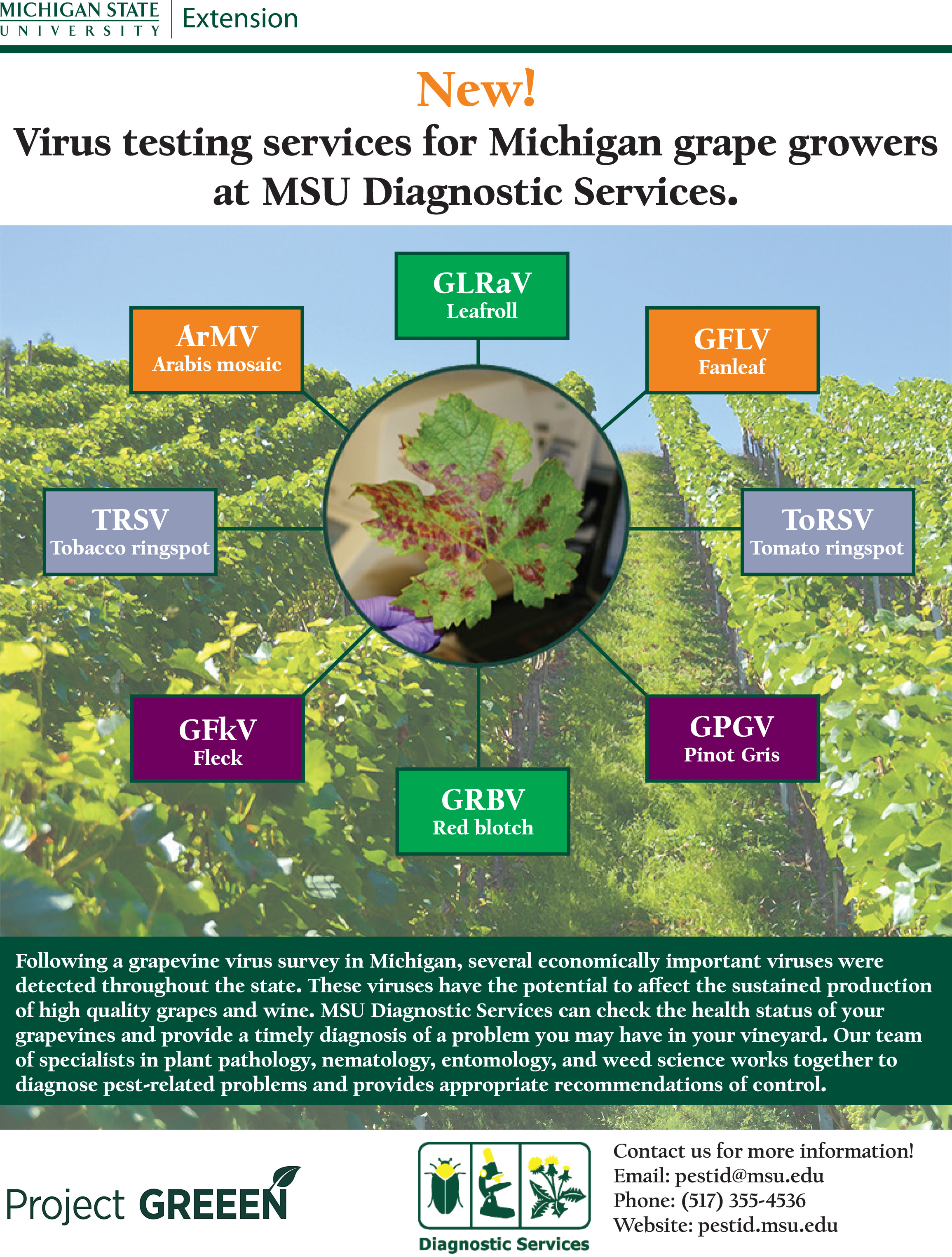New grapevine virus testing services at MSU starting in summer 2019
Based on a grapevine virus survey, MSU Diagnostic Services is developing new laboratory tests to diagnose problems in Michigan’s vineyards. Watch for details as we develop this service.

Following a grapevine virus survey in Michigan, several economically important viruses were detected throughout the state with the potential to affect the sustained production of quality grapes and wine. Growers and vineyard managers should regularly scout their vineyards for abnormal vine growth and yearly assess vineyard health and productivity.
Viral diseases can be difficult to diagnose based on symptoms alone. Some viral symptoms are mistakenly attributed to “fall colors” or confused with nutrient deficiencies (Photo 1). Some viral symptoms can also vary greatly with the cultivar, especially when comparing red versus white-colored grapes and even within the season. Additionally, in a single vine, mixed virus infections can cause different symptom expression or symptomless infections can occur
Possible problems with grapevine viruses in Michigan:
- Viruses are difficult to diagnose in the field using symptoms alone.
- The effects of viruses vary across cultivar and growing season.
- No cure exists for infected grapevines, so limiting virus spread and planting virus-free stock is critical.
- We still have relatively limited information as to how prevalent these viruses are throughout the state.
 In summer 2019, Michigan State University Diagnostic Services will start offering molecular-based tests to check the health status of your grapevines (see our flier). Our team of specialists in plant pathology, nematology, entomology and weed science works together to diagnose pest-related problems, providing a timely diagnosis of a problem you may have in your vineyard and appropriate recommendations of control.
In summer 2019, Michigan State University Diagnostic Services will start offering molecular-based tests to check the health status of your grapevines (see our flier). Our team of specialists in plant pathology, nematology, entomology and weed science works together to diagnose pest-related problems, providing a timely diagnosis of a problem you may have in your vineyard and appropriate recommendations of control.
For more information about this upcoming service, please contact MSU Diagnostics Services:
Email: pestid@msu.edu
Phone: 517-355-4536
Website: www.pestid.msu.edu



 Print
Print Email
Email
